Strategic Priorities
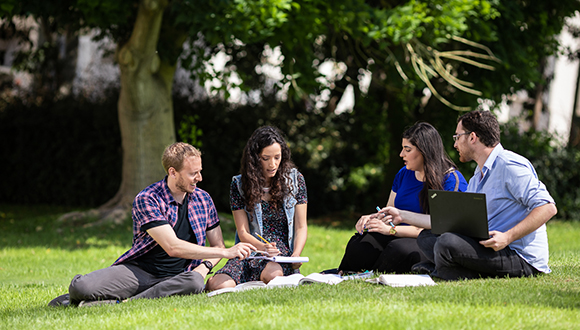
Tel Aviv University (TAU) is the largest, most comprehensive and most dynamic research and teaching institution in Israel, offering the country’s most diversified range of study and research fields. Located at the heart of Israel’s economic, technological and cultural center, TAU is proud of its liberal and pluralistic spirit. The vision of the University is to become a world-leading research university and the top one in Israel.
TAU’s mission is similar to that of other leading universities: To promote research of the highest level and to equip tens of thousands of students annually with academic knowledge and critical thinking skills. The University also aims to influence society in Israel and globally in spheres including industry, culture and education.
From these goals, the University has formulated six strategic priorities that it seeks to advance: breakthrough research, innovative learning, international collaboration, multidisciplinary research & teaching, ties with industry and society, and equality & diversity.
The following is a summary of the strategy by topic:
Research is the life force of the University. Predicting where the next breakthroughs will come from is difficult, and thus it is the role of the University to provide researchers with the optimal conditions that enable them to follow their scientific curiosity. The University accomplishes this by providing state-of-the-art research facilities, encouraging collaboration between researchers in Israel and internationally, and minimizing administrative obstacles. In addition, TAU aims to recruit the most promising young researchers and offer them the resources and support they need for fruitful work. Recognizing that breakthroughs frequently occur at the crossroads where diverse fields meet, the University is establishing interdisciplinary centers with a wide spectrum of faculty members to intensify such collaborative research.
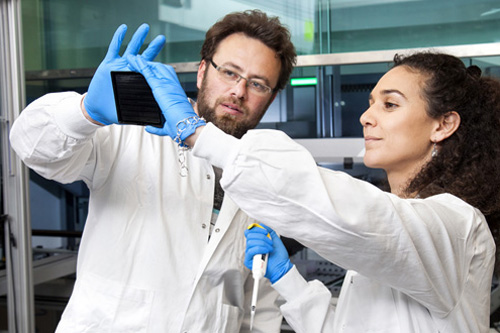
Cultivating scientific and intellectual curiosity among its students is of great importance to TAU, as is preparing them as independent researchers in the framework of their graduate degrees. This training begins in the undergraduate stage, when students are exposed to research activity across the campus, and intensifies at the master’s and doctoral levels, when students conduct research under the supervision of faculty members. Many of our doctoral alumni eventually become academics in their own right, and are recruited as faculty members at TAU and at other research institutions in Israel and worldwide.
Tel Aviv University considers it both a calling and a privilege to train new generations of intellectuals, leaders and professionals who will serve society and the State of Israel, as well as become the internationally-renowned scientists of tomorrow. TAU offers its students the most comprehensive choice of study fields in Israel, and aspires to be the leading institution in the country in each of these fields. The University invests tremendous resources in updating and developing innovative teaching methods suited to the 21st century and, to this end, TAU recently established the Office of the Dean of Innovation in Teaching & Learning. The Office brings together academics and professionals from the fields of pedagogy, media and information technology to develop, improve and modernize teaching methods, as well as to support teaching faculty as they integrate these methods into the courses taught on campus.

In the light of modern information technology and its influence on society in general and higher education in particular, the University is making the necessary adaptations to enable more efficient learning among the younger generation – whose expectations and needs are very different from their predecessors. The University aspires to upgrade its teaching methods using asynchronous learning (such as taped lessons) and interactive digital tools. In this way, face-to-face meetings between students and lecturers will be utilized for other purposes: debating, asking questions, encouraging creativity and critical thinking, and deliberating the meaning of the subject matter. They also enable our lecturers, who are for the most part also researchers, to share with students the thinking processes that led to their current research, to present key open questions in their field, and to facilitate a discussion on how to approach them.
Tel Aviv University recognizes the tremendous significance of international collaboration in all areas of its work. It thus strives to develop research ties with the world's leading institutions, to attract outstanding students from across the globe, and to provide Israeli students with the tools they need to prosper in the globalized era in which we live.
The University partners with a broad network of universities across the United States, Europe, and Asia. Currently in the pipeline is the establishment of a joint research and teaching center on aging in cooperation with Columbia University and an entrepreneurial group in the UAE. In the coming years, we will be launching additional such centers and study programs in cooperation with overseas academic institutions – with the goal of securing a long-term international partner for virtually every school on campus.
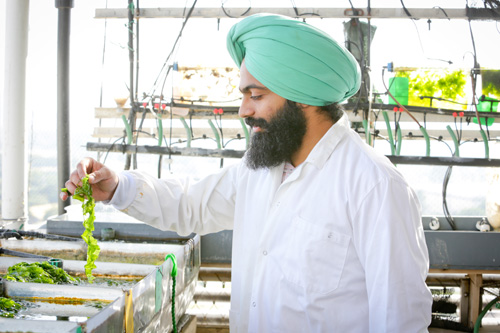
Every year TAU has over 2,000 international students enrolled at TAU International. They study in undergraduate and master's degree programs taught in English, some alongside their Israeli peers, while others attend semester or year-long Study Abroad or Gap Year programs. International master’s, doctoral and post-doctoral students are integrated into the University's research endeavors, including its many cutting-edge labs. In the next few years, the University intends to further broaden and diversify its international offerings and increase the number of overseas students at all degree levels.
In addition, TAU operates several joint study programs in cooperation with leading academic institutions worldwide, among them UC Berkeley, Northwestern, and Johns Hopkins in the United States; Peking University in China; and Thapar University in India. Recently, Tel Aviv University launched a dual undergraduate degree program with Columbia University – the first ever such partnership between an Ivy League institution and an Israeli university. Students spend two years at TAU followed by two years at the Columbia University campus in New York, with a curriculum that combines the humanities with aspects of the social sciences, life sciences, and entrepreneurship. In 2022, TAU is launching an online MBA program – the University’s first completely online degree – that will be open to students around the world.
TAU also sees great importance in inviting guest lecturers from abroad, who generally visit for short periods of up to a few months, during which they enrich research and teaching on campus and enhance the University’s international partnerships.
In the coming years, TAU hopes to establish a modest branch in Europe, which will operate in collaboration with local academic partners.
TAU’s vast range of research and teaching fields creates unique and fascinating connections between disciplines that are not traditionally connected to one another – and provides infinite possibilities for academic creativity. Accordingly, we are setting up multidisciplinary research and teaching frameworks that bring together researchers from the exact and biomedical sciences, on the one hand, with colleagues from the humanities, arts and social sciences, on the other. A prime example is the successful Sagol School of Neuroscience established a decade ago.

In the years 2020 and 2021, we established multidisciplinary centers and initiatives in the fields of artificial intelligence and data science, climate change, quantum science and technology, combating pandemics, and the study of aging. Another addition is "Thought and Decision," a project in which faculty members present their research to an audience of researchers from diverse backgrounds. The long-term plan is to upgrade this project into a full-fledged center for multidisciplinary thought, where interested scholars and scientists will be able to exchange ideas and opinions – which could lead to new and exciting collaborations.
The University’s multidisciplinary nature is reflected not only in its research but also its teaching programs. One such example is the Jack, Joseph and Morton Mandel Center for Humanities in STEM, which promotes the study of the humanities among science and engineering students. Until today, two Mandel Programs operated on campus for a select group of engineering, life sciences and exact sciences students, who each took 12 to 15 courses in Humanities throughout their degree. This academic year, a third program will be introduced that enables all incoming undergraduate students in the sciences to take 3 core courses in the Humanities.
TAU has robust ties with over 70 industry partners from Israel and worldwide, as well as with 17 affiliated hospitals and diverse government and municipal bodies. Industry collaborations are generally conducted via Ramot, TAU’s technology transfer and commercialization arm. Another unit, TAU Ventures, joined Ramot a few years ago and serves as an incubator for nascent startups led by our alumni. We aim to intensify our ties with industry and maximize their impact – for the benefit of University research and teaching, along with society at large.
These ties are boosted by TAU’s close proximity to Israel’s hub for high-tech and biotech firms – many of which are good candidates for research collaborations. In this context, we plan to invite more such companies to rent offices adjacent to the campus to enable them to deepen their collaborative ties with TAU researchers.
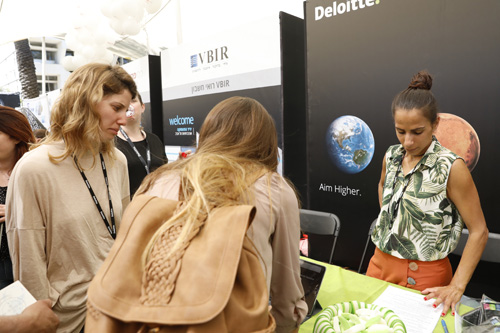
We are currently establishing a Center for Innovation Laboratories, which will feature ten multidisciplinary labs with particularly high potential for real-world applications. Among the center’s members and partners will be industry representatives from Israel and worldwide who will help fund the center's activities. They will present the needs and problems faced by industry, for which the labs will try to provide viable solutions. This project is an additional and unique means for promoting high-impact, multidisciplinary research on campus that can be translated into practical outcomes.
For three years now, TAU has been running an Entrepreneurship Center. Its initial focus was offering entrepreneurship courses to students across the campus. About a year ago, the Center’s focus shifted to increasing entrepreneurial training and activity within each of its nine faculties as well. The University management is now encouraging each of the faculties to set up their own entrepreneurship hubs that will suit their specific needs best, while also collaborating one with the other.
Seventeen hospitals are affiliated with TAU, among them Israel’s largest medical centers. The hospitals not only operate as teaching venues for our medical and health professions students, but also host several research centers in collaboration with TAU. A recent example is the joint center for gene therapy that we established at the Sourasky Tel Aviv Medical Center. In the coming years, we aim to intensify these hospital ties by setting up more joint labs and centers; by strengthening relations with outstanding physician-clinicians; and by bridging between lab discoveries and medical needs.
For some years TAU has been operating the Translational Medicine Center, which is the Israeli affiliate of Stanford University’s global SPARK network. The Center’s goal is to fast-track the development of drugs, therapies and diagnostic tools based on research conducted in labs across the campus – and advance them toward the clinical and commercialization stage. The Center brings together TAU researchers from the life sciences and medicine with physicians from TAU-affiliated hospitals and representatives from the pharma and biotech industries.
The University also aims to share the knowledge it creates with the public. TAU organizes dedicated events for the community, such as Etnachta, the Rector's Series, and concert series; holds academic events open to the public, such as conferences and “Learning at Gilman”; and presents the richness of its programming on its website. Furthermore, TAU’s "Academic Cities" project enables high school students – including those from Israel’s outlying towns and communities – to attend university-level online courses on diverse topics as part of their regular school curriculum, under the supervision of specially trained schoolteachers. The project builds up the students’ confidence in their own academic abilities and helps to make higher education more accessible to disempowered groups.
In July 2021, TAU established the Equality and Diversity Commission. Answering to the TAU President, the Commission aims to advance policy, programming and activities for enhancing equality and diversity among its academic faculty, administrative employees and students. It works to enhance a sense of belonging among all groups on campus, including Israeli Arabs, women, first-generation university students, people with disabilities, Sephardic students, the LGBTQ community, Ethiopian Israelis, the ultra-Orthodox, and others.
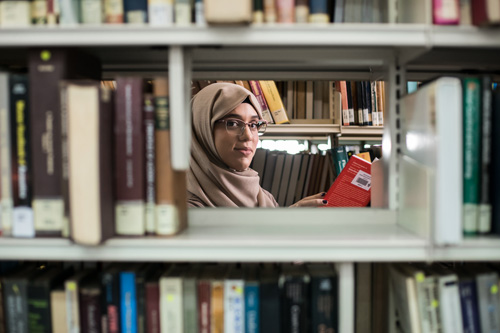
The establishment of the Commission reflects the understanding that, for the University to fulfill its mission – tackling complex social problems, achieving scientific breakthroughs and maximizing artistic expression – it must integrate a broad variety of ideas, approaches, perspectives and investigations.
The Commission also reflects the social and civic commitment of Tel Aviv University to making its material and intellectual resources accessible – in an equitable manner – to all sectors of society.
A diversified campus produces opportunities for students and faculty from different backgrounds to get acquainted, increases tolerance for contrasting viewpoints, and prepares students for better citizenship and leadership in a democratic society that aspires to create a united and equitable society.


